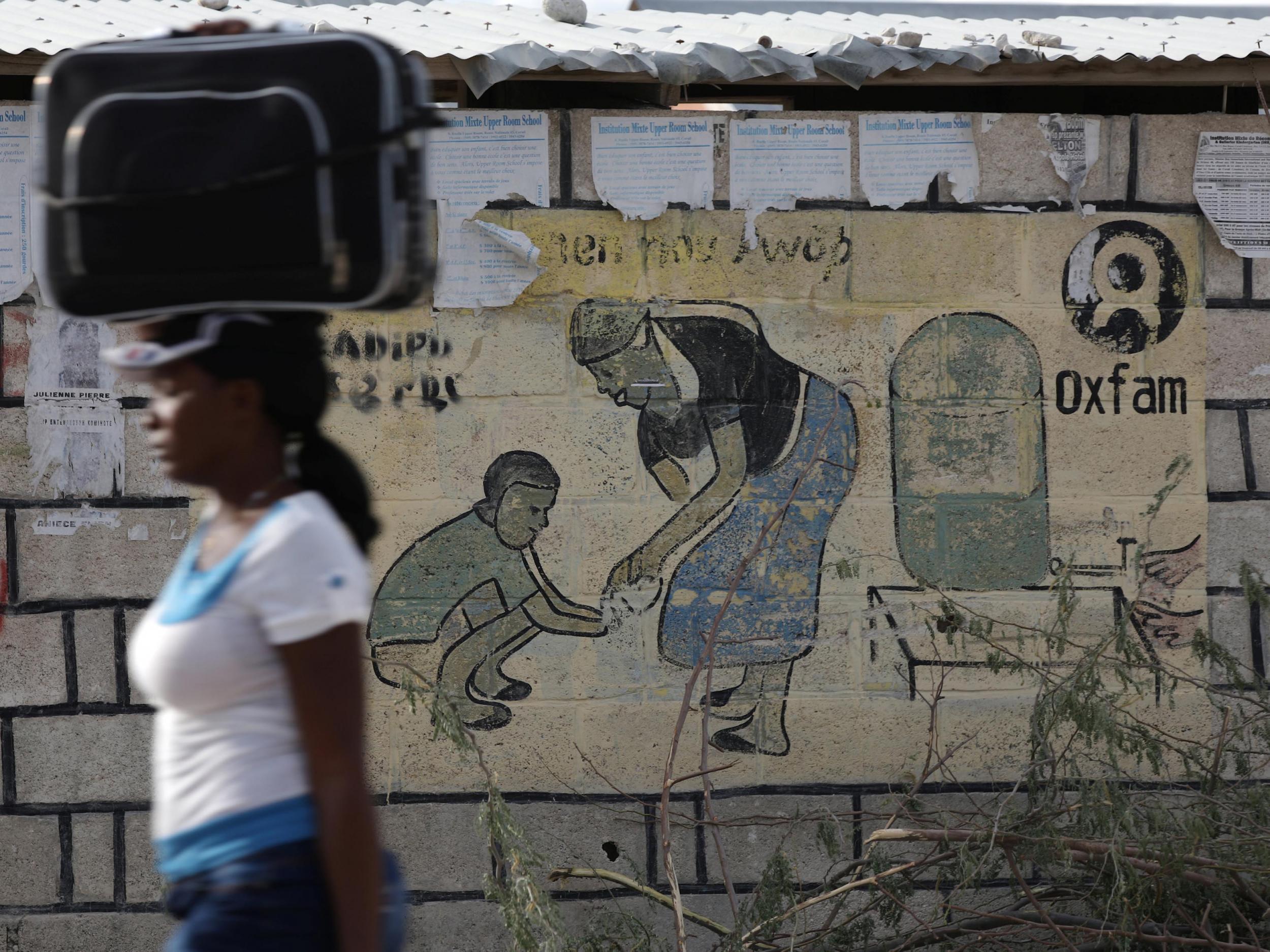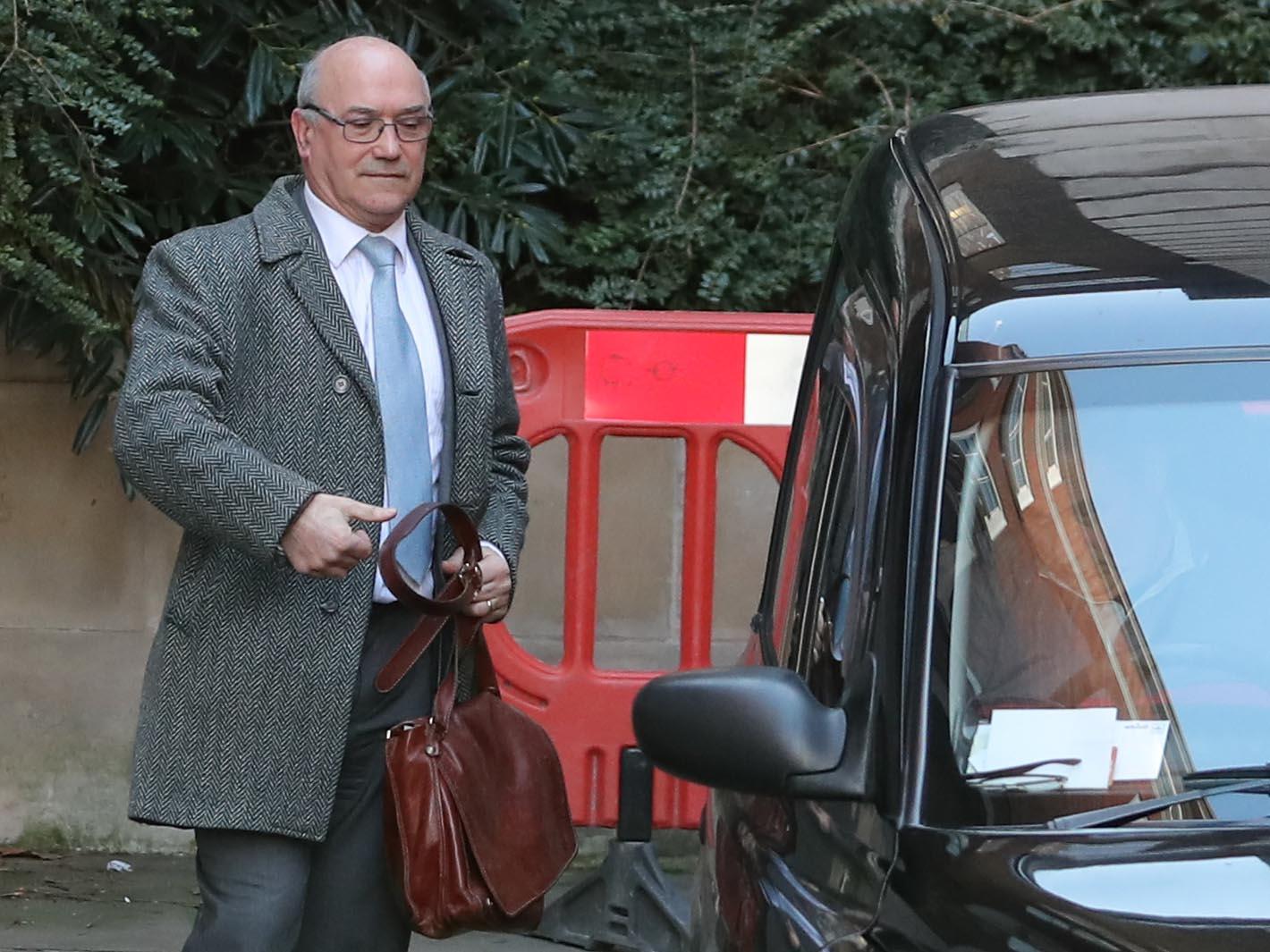Aid sector guilty of 'complacency verging on complicity' over sexual abuse by staff, MPs find
Damning report says ongoing abuse and exploitation by aid workers was an ‘open secret’

Your support helps us to tell the story
From reproductive rights to climate change to Big Tech, The Independent is on the ground when the story is developing. Whether it's investigating the financials of Elon Musk's pro-Trump PAC or producing our latest documentary, 'The A Word', which shines a light on the American women fighting for reproductive rights, we know how important it is to parse out the facts from the messaging.
At such a critical moment in US history, we need reporters on the ground. Your donation allows us to keep sending journalists to speak to both sides of the story.
The Independent is trusted by Americans across the entire political spectrum. And unlike many other quality news outlets, we choose not to lock Americans out of our reporting and analysis with paywalls. We believe quality journalism should be available to everyone, paid for by those who can afford it.
Your support makes all the difference.The aid sector is guilty of “complacency verging on complicity” over sexual abuse and exploitation that was an open secret for years before the Oxfam scandal, MPs have found.
The International Development Committee said claims of surprise were “not appropriate” after revelations that senior aid workers had used prostitutes in Haiti and then been able to gain employment in other crisis zones.
A six-month investigation found that abuses by aid workers and United Nations peacekeepers are still happening in developing countries, including in warzones and refugee camps where human trafficking and prostitution are common.
MPs warned that the cases made public so far are only the “tip of the iceberg” as underreporting makes the true scale of “endemic” abuse across organisations, countries and institutions impossible to define.
The damning report said the “self-delusion” of the aid sector had prevented it from tackling problems, amid a collective failure by leaders who were more concerned with their reputations than victims.
It warned that the delivery of aid to crisis zones “has been subverted by sexual predators who exploit weakened systems of governance”.
So much more could have been done to tackle the open secret, it said, that “outrage is appropriate but surprise is not”.
“In addition to the abuse of aid beneficiaries, there is also evidence of significant numbers of cases of sexual harassment and abuse within aid organisations,” MPs concluded.
“The aid sector, collectively, has been aware of sexual exploitation and abuse by its own personnel for years, but the attention that it has given to the problem has not matched the challenge.”
The committee said a perceived “boys’ club” culture within aid organisations left female employees afraid to challenge harassment by their male colleagues.
It condemned the trend for victims and whistleblowers to feel penalised, rather than the perpetrators themselves, who have often been able to continue working in the sector even after internal investigations.
Members said that while the UN and charities have reacted to episodic scandals with “reputation management”, there has been no meaningful long term change or funding to improve protection for vulnerable women and children.
The Oxfam scandal sparked fresh action by the charity itself, as well as the Department for International Development (Dfid) and Charity Commission, and MPs said authorities must ensure the momentum was maintained.
The committee called the establishment of an independent aid ombudsman to regulate the industry, and for Dfid to report annually on safeguarding, publish information on cases and allow victims to be heard.
It said that charities must properly fund safeguarding processes, empower whistleblowers and victims to report, improve screening and referencing practices, and explore a global register of development workers to prevent “criminal and predatory individuals” being re-employed.
The committee also criticised the UN, whose peacekeepers are accused of raping women and children in several countries, for “flawed” mechanisms that allow impunity for abuse.
Stephen Twigg, chair of the International Development Committee, said all relevant authorities were being “put on notice” to ensure solutions are found.
The Labour MP said that although some promising steps had been taken since The Times’ expose on Haiti six months ago, “one thing has not: the abject failure of the international aid sector to get to grips with this issue, leaving victims at the mercy of those who seek to use power to abuse others”.
“Victims and whistleblowers must not end up feeling penalised for speaking out,” he added. Humanitarian organisations and the UN cannot continue a “culture of denial” when confronted with allegations of sexual exploitation and abuse.
“The committee is deeply concerned that previous attempts have amounted to limited action in order to quell media clamour with no lasting impact or redress.”
Pauline Latham, a committee member charged with monitoring Dfid’s response, said the abuse was an “open secret”, adding: “I believe deep cultural change is required across all aid organisations, starting with their – all too often male – senior leadership. Sexual abuse of aid beneficiaries, and of women aid workers, which I believe is linked, must be stamped out.”
Andrew MacLeod, a former UN official who founded the Hear Their Cries charity, said the report did not put enough emphasis on prosecuting perpetrators and called for new laws to tackle offences committed abroad.
“We should strengthen the law for prosecution of charity CEOs and trustees for aiding and abetting child sex crimes as for decades they knew, or ought to have known, these endemic crimes were taking place and have manifestly failed to stop them,” he added.

Bond, a British network of NGOs, said charities were working to end sexual exploitation and abuse in-house and around the world.
Interim chief executive Judith Brodie said: “There is more to be done and we must ensure that where failures of culture and policies within our own organisations exist, this will not be tolerated … culture around safeguarding is shifting towards better reporting, screening and accountability.”
Caroline Thomson, Oxfam’s chair of trustees, said it had already tripled funding for safeguarding, established an independent whistleblowing helpline and committed to publish details of cases twice a year.
“Oxfam exists to help improve the lives of the world’s most vulnerable people; we know we failed to protect vulnerable women in Haiti, and we accept we should have reported more clearly at the time – for that we are truly sorry,” she added.
“We have made improvements since 2011 but recognise we have further to go.”
The Charity Commission welcomed the recommendations, which included calls for it to be given more government funding, and pledged to help reforms.
Dfid previously said it would include information on safeguarding cases in its annual report and has set up a safeguarding unit and demanded assurances from 283 recipients of British public money.
The international development secretary Penny Mordaunt said: “Until the sector is fully prepared to address the power imbalance, cultures and behaviours that allow sexual abuse, exploitation and harassment to happen, we will never stamp it out.
“Ensuring that survivors’ voices are heard and taken seriously is paramount. As we look ahead to October’s international summit on this issue we expect to see the sector demonstrate the progress they have made to put victims, survivors and the people we are there to help first.”
Join our commenting forum
Join thought-provoking conversations, follow other Independent readers and see their replies
Comments